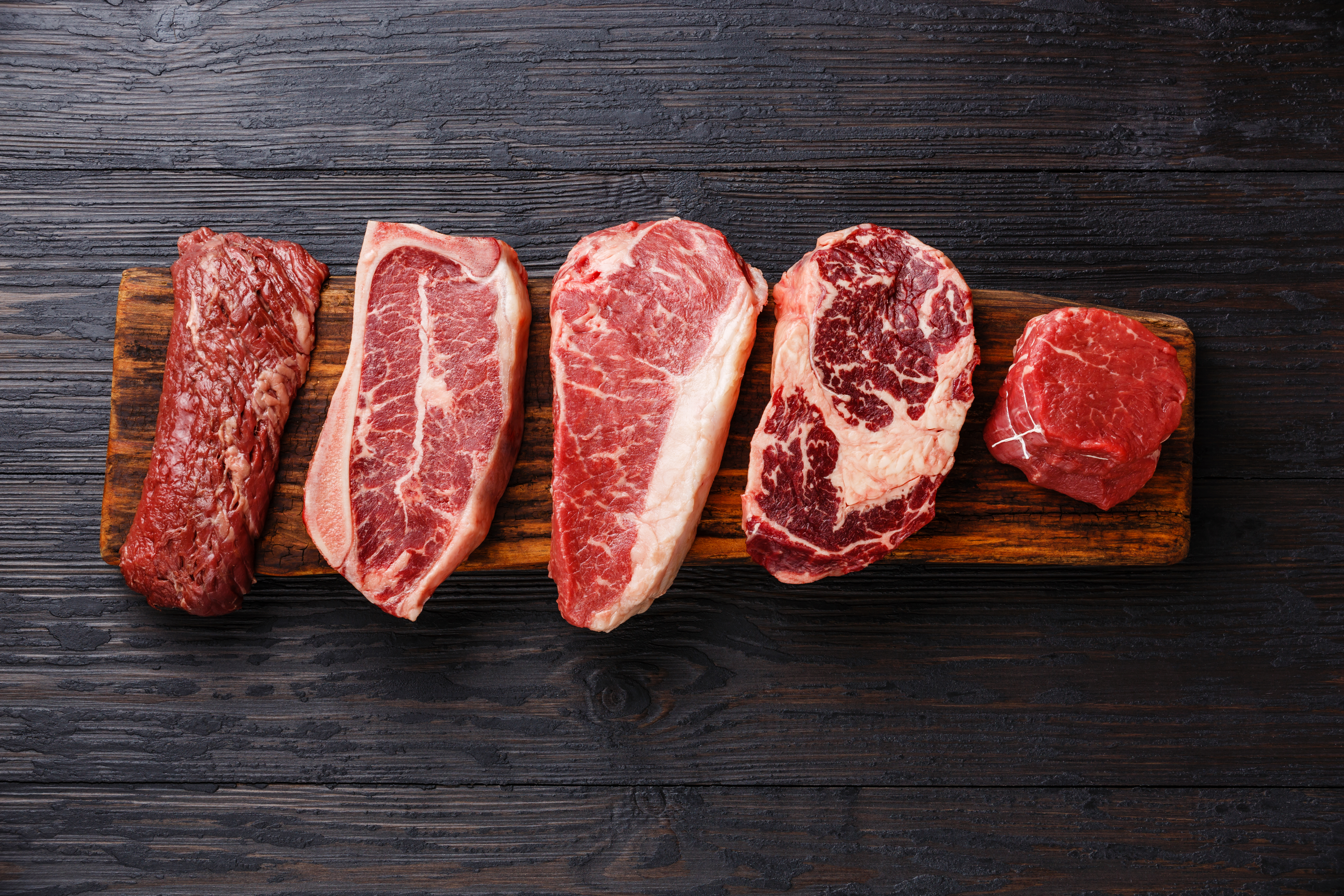This university banned beef to reduce its carbon footprint


A free daily email with the biggest news stories of the day – and the best features from TheWeek.com
You are now subscribed
Your newsletter sign-up was successful
When classes start in September at Goldsmiths, University of London, there will be no beef or beef products available on campus. The beef-ban is part of the university's initiative to become carbon neutral by 2025, according to its website. This means its activities will release net zero carbon emissions into the atmosphere.
The school will also impose a 10 pence- (12 cent) tax on bottled water and single use plastic cups, with proceeds benefiting the "green student initiative fund".
The announcement follows an increase in the global conversation around the relationship between human diets and climate change, and the introduction of meat alternatives to mainstream food chains: Burger King now offers the "Impossible Burger," and Subway recently announced a "Beyond Meat" meatball sub. Earlier this month, lawmakers in Germany proposed an increase on the tax on meat to decrease the country's meat consumption.
The Week
Escape your echo chamber. Get the facts behind the news, plus analysis from multiple perspectives.

Sign up for The Week's Free Newsletters
From our morning news briefing to a weekly Good News Newsletter, get the best of The Week delivered directly to your inbox.
From our morning news briefing to a weekly Good News Newsletter, get the best of The Week delivered directly to your inbox.
The UN's Intergovernmental Panel on Climate Change explained in a press release last week how certain dietary choices use more resources, resulting in greater emissions. Diets with plant-based foods and sustainably-produced animal-sourced foods result in lower emissions and "present major opportunities for adaptation to and limiting climate change," says Debra Roberts of the IPCC.
Across the globe, livestock results in 14.5 to 18 percent of "human-induced" greenhouse gas emissions, per The New York Times. In a paper titled "Less beef, less carbon," the National Resource Defense Council reported that producing 1 kg of beef emits 26 kg of carbon dioxide, the highest of all the 197 foods they examined.
Frances Corner, the warden of Goldsmiths, says we are at a "defining moment in global history" and the university joins the ranks of other organizations "to call the alarm and take urgent action to cut carbon use."
A free daily email with the biggest news stories of the day – and the best features from TheWeek.com
Taylor Watson is audience engagement editor for TheWeek.com and a former editorial assistant. She graduated from Syracuse University, with a major in magazine journalism and minors in food studies and nutrition. Taylor has previously written for Runner's World, Vice, and more.
-
 The Week Unwrapped: Do the Freemasons have too much sway in the police force?
The Week Unwrapped: Do the Freemasons have too much sway in the police force?Podcast Plus, what does the growing popularity of prediction markets mean for the future? And why are UK film and TV workers struggling?
-
 Properties of the week: pretty thatched cottages
Properties of the week: pretty thatched cottagesThe Week Recommends Featuring homes in West Sussex, Dorset and Suffolk
-
 The week’s best photos
The week’s best photosIn Pictures An explosive meal, a carnival of joy, and more
-
 Nobody seems surprised Wagner's Prigozhin died under suspicious circumstances
Nobody seems surprised Wagner's Prigozhin died under suspicious circumstancesSpeed Read
-
 Western mountain climbers allegedly left Pakistani porter to die on K2
Western mountain climbers allegedly left Pakistani porter to die on K2Speed Read
-
 'Circular saw blades' divide controversial Rio Grande buoys installed by Texas governor
'Circular saw blades' divide controversial Rio Grande buoys installed by Texas governorSpeed Read
-
 Los Angeles city workers stage 1-day walkout over labor conditions
Los Angeles city workers stage 1-day walkout over labor conditionsSpeed Read
-
 Mega Millions jackpot climbs to an estimated $1.55 billion
Mega Millions jackpot climbs to an estimated $1.55 billionSpeed Read
-
 Bangladesh dealing with worst dengue fever outbreak on record
Bangladesh dealing with worst dengue fever outbreak on recordSpeed Read
-
 Glacial outburst flooding in Juneau destroys homes
Glacial outburst flooding in Juneau destroys homesSpeed Read
-
 Scotland seeking 'monster hunters' to search for fabled Loch Ness creature
Scotland seeking 'monster hunters' to search for fabled Loch Ness creatureSpeed Read
